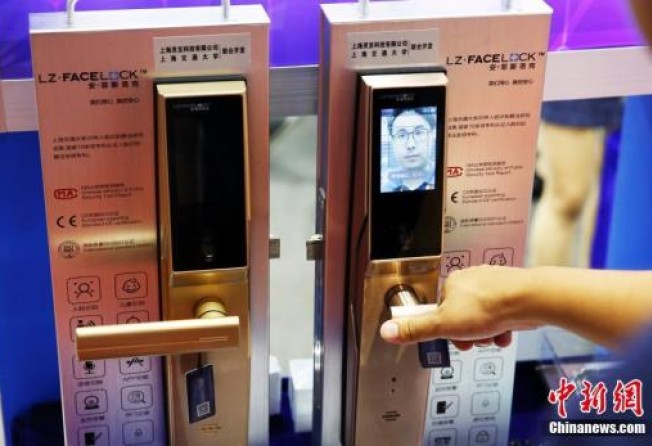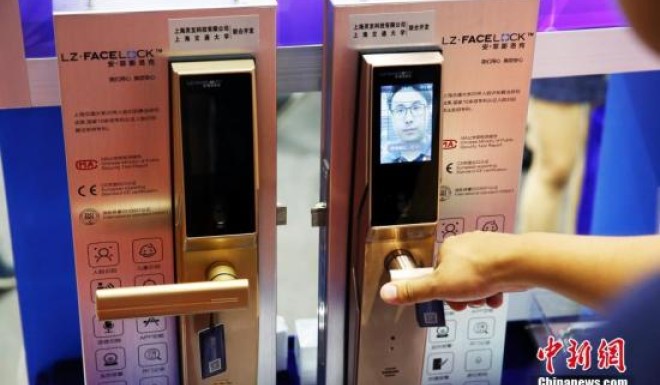Using smart door locks with facial recognition? China says you should think twice
A rare warning in a country that embraces facial recognition

The Chinese government usually loves to tout the effectiveness of facial recognition, whether it’s for solving crimes or checking in passengers at airports. But now it’s saying there’s one place where people should be careful about using the technology -- your front door.
The State Administration of Market Regulation is warning people to be wary about smart door locks that use facial recognition, saying that they pose high security risks and contain “hidden dangers” -- especially for those that also use smart cards to unlock.
The regulator didn’t name brands or elaborate on technical details. But it’s not hard to imagine the risks. A regular 2D camera, without an infrared sensor, can be easily fooled by photos. Security experts say even more sophisticated cameras can fall prey to 3D models of your face, reproduced from photos found on social media or other channels.
Authorities suggest that users should disable facial recognition on the locks and instead use multiple verification procedures, like combining fingerprints with passwords.

Last year, China shipped about 6 million smart door locks for homes, representing 100 percent growth compared to 2016, according to a report by JingData -- a data analysis arm of Chinese tech media site 36Kr.
The report noted that only 5 percent of Chinese homes are using smart locks, but they have a 10 percent penetration rate in rental apartments operated by some companies, such as long-term apartment rental company Ziru as well as Xiaozhu, China’s Airbnb-like home sharing platform. In July, Xiaozhu said it started rolling out smart door locks that can be opened by scanning users' faces.
(Abacus is a unit of South China Morning Post, which is owned by Alibaba. Alibaba chairman Jack Ma is an investor of Yunfeng Capital, which backs Xiaozhu.)
China has been quick to adopt facial recognition technology, as it pushes to become a world leader in artificial intelligence. People pay for food in stores by having their faces scanned, high schools use facial recognition cameras to see if students are paying attention in classrooms, and law enforcement uses the technology to track criminals.
But state media has occasionally warned about the privacy and security issues involved. A People’s Daily article published earlier this month, for example, said that facial recognition could be abused by malicious actors. It also pointed out that China’s cybersecurity law lacks operational details on how to protect personal information.
Americans are creeped out by Amazon’s facial recognition tool -- but China is embracing the technology
For more insights into China tech, sign up for our tech newsletters, subscribe to our Inside China Tech podcast, and download the comprehensive 2019 China Internet Report. Also roam China Tech City, an award-winning interactive digital map at our sister site Abacus.
For more insights into China tech, sign up for our tech newsletters, subscribe to our Inside China Tech podcast, and download the comprehensive 2019 China Internet Report. Also roam China Tech City, an award-winning interactive digital map at our sister site Abacus.